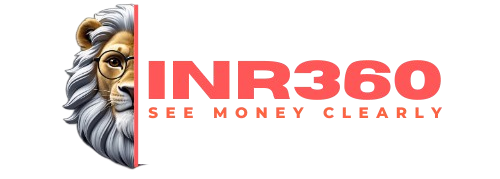The gig economy is revolutionizing the way we work. With over $455 billion in global value as of 2023 and projections of continued growth, this sector offers unprecedented opportunities for individuals seeking flexibility, autonomy, and financial independence. But as the market becomes increasingly competitive, now is the time to act decisively and carve out your space in this booming landscape.
Understanding the Gig Economy
The gig economy refers to a labor market dominated by short-term contracts, freelance work, and independent contracting rather than traditional permanent employment. Popularized by platforms like Uber, Fiverr, and Upwork, the gig economy spans a wide array of industries, from tech and creative services to transportation and delivery.
Key Statistics
- Global growth: The gig economy grew by 33% in the last five years.
- Worker demographics: Millennials and Gen Z make up 70% of gig workers, with women accounting for 46%.
- Earnings potential: Skilled freelancers earn an average of $28/hour, higher than the median hourly wage in many countries.
Why the Gig Economy Is Booming
Several factors contribute to this explosive growth:
1. Technological Advancements
Apps and online platforms have bridged the gap between service providers and consumers, making gig work accessible and efficient.
2. Shift in Work Preferences
Workers today prioritize flexibility, with 76% of gig workers reporting greater work-life balance compared to traditional jobs.
3. Economic Necessities
Businesses find gig workers cost-effective, reducing overhead while accessing specialized skills on demand.
4. Diverse Opportunities
From freelance graphic design to pet-sitting, the gig economy offers roles for every skill level and interest.
How to Get Started in the Gig Economy
1. Assess Your Skills and Goals
Before diving in, take stock of your abilities and identify areas where you can add value. Ask yourself:
- What am I good at?
- What industries excite me?
- How much income do I aim to earn?
2. Research Market Demand
Analyze platforms like Upwork or Toptal to identify high-demand skills. For instance:
- Tech skills: Web development, cybersecurity, and data analysis
- Creative skills: Writing, video editing, and graphic design
- Service skills: Virtual assistance, coaching, and consulting
3. Build Your Brand
Your professional profile is your ticket to success. Focus on these key elements:
- Portfolio: Showcase your work to build credibility.
- LinkedIn Optimization: Use keywords like “freelance writer” or “SEO expert” to attract recruiters.
- Testimonials: Leverage recommendations from previous clients to establish trust.
4. Choose the Right Platforms
Each gig platform caters to specific industries. Some popular options include:
- Freelancing: Fiverr, Upwork, and Freelancer
- Creative work: Behance and Dribbble
- Consulting: Clarity.fm and Catalant
5. Price Your Services Strategically
Start with competitive rates to gain traction, then gradually increase your fees as you build experience and demand.
Navigating Challenges in the Gig Economy
1. Income Stability
Solution: Diversify your income streams by offering multiple services across different platforms.
2. Competition
Solution: Specialize in a niche to stand out and command higher rates.
3. Legal and Tax Obligations
Solution: Register as a freelancer and consult a tax advisor to manage your financial responsibilities.
Future Trends in the Gig Economy
1. AI and Automation
AI tools like ChatGPT are empowering gig workers to deliver higher-quality results faster. Stay ahead by learning how to integrate AI into your workflow.
2. Hybrid Work Models
Companies are increasingly blending full-time employees with gig workers, creating new opportunities.
3. Focus on Sustainability
Green gigs, such as sustainability consulting and eco-friendly project management, are on the rise.
Case Study: From Novice to Pro in 6 Months
Meet Priya, a 28-year-old graphic designer who transitioned to full-time freelancing in 2024. By:
- Specializing in e-commerce design
- Leveraging platforms like Upwork
- Upskilling through online courses on UX/UI trends She tripled her income within six months and now mentors aspiring gig workers.
Why You Need to Act Now
The gig economy is evolving rapidly. Those who enter early position themselves as industry leaders, while latecomers face tougher competition. By starting today, you can:
- Build a robust portfolio
- Establish a strong client base
- Stay ahead of market trends
Conclusion: Take the Leap
The gig economy is not just a trend—it’s the future of work. Whether you’re looking for a side hustle, a career change, or a way to monetize your passions, the time to act is now. Follow this guide, stay adaptable, and embrace lifelong learning to thrive in this dynamic landscape.
You might also be interested in: Fresh Graduate? Do These 5 Things Today to Get Hired Tomorrow



